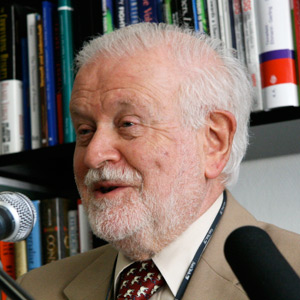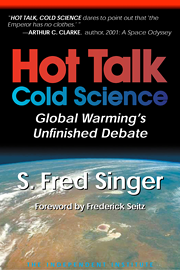Senator Joseph I. Lieberman has taken a seat next to Al Gore on the Global Warming Bandwagon.
"This threat is not an abstraction or the object of a science fiction writer’s overactive imagination. It is unfortunately all too real," Sen. Lieberman said in joining two colleagues to introduce a bill creating tax credits for businesses that voluntarily reduce levels of pollutants that radical environmentalists say are causing the world to overheat.
But even before that bill got into the legislative hopper, researchers here and abroad had released further evidence debunking the theory that human activity is causing Earth’s temperature to rise and demonstrating once again that if a warm-up comes, mankind would benefit from it.
Environmentalists have enlisted Sen. Lieberman’s help in getting the provisions of the Kyoto Protocol, the 1997 agreement among industrialized nations to reduce greenhouse-gas emissions by 2012, enacted without Senate ratification. Using the weather models designed by global warmists, British researchers concluded no one can predict what the climate will be like in 50 years because climate change is too random. They said the models predict increased wheat yields in northern Europe, but average yields elsewhere. But when the fertilizing effect of extra carbon dioxide in the air is factored in, the models showed yields would rise across the continent by as much as 39 percent, resulting in more food for consumers at lower prices.
In his book Hot Talk. Cold Science: Global Warming’s Unfinished Debate, researcher S. Fred Singer makes similar common-sense arguments. He predicts yields of many crops worldwide will increase because of higher night temperatures and longer growing seasons. Warmer weather would lead to an explosion of plants and animals in the oceans. He said the severity of storms would be reduced because the pole-to-equator temperature gradient that fuels hurricanes, nor’easters and the like would be reduced significantly. But as good as global warming might be for cultivation, he believes the only certainty today is the ambiguity of the data.
Study after study by credible scientists have blown gaping holes in the global-warming theory. More than 17,000 scientists now have signed the "Oregon Petition" saying they believe there is no compelling evidence of impending catastrophic warming caused by human activity. And they agree if the Earth does get warmer, some of the planet’s problems, especially energy and food shortages, might be solved or eased.
Though its theory has been exposed as scientific myth, the environmental fringe presses on. And that makes Mr. Singer’s observation, that the real threat of global warming is the "economic havoc" that Kyoto would bring just "to ‘correct’ ... a non-problem," all the more portentous.
As much as the treaty has a snowball’s chance of Senate ratification, senators also must be wary of bills that Mr. Gore and Sen. Lieberman might try to sneak through the back door.









